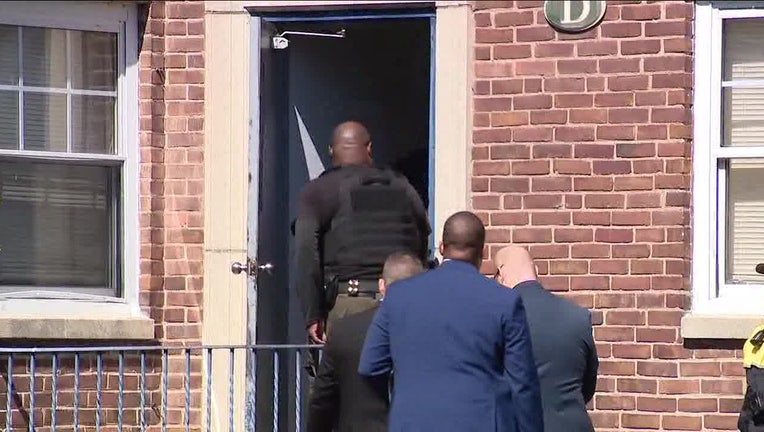Philadelphia to resume evictions carried out by landlord tenant officers after retraining

PHILADELPHIA - Philadelphia’s court appointed landlord tenant office will resume carrying out evictions next week after pausing last month to retrain staff in use of force and de-escalation practices.
The training came after multiple recent shootings during evictions.
The Landlord and Tenant Office of Philadelphia Municipal Court says evictions will resume on or after Monday, Aug. 21.
The office says new protocols and procedures have been put in place and were designed ‘after input from numerous stakeholders.’ The new protocols are intended to ‘eliminate violence in the eviction process and increase the safety of tenants, city residents and deputy LTO officers during execution of court orders,’ according to a statement released Friday.
The recent shooting incidents had prompted the President Judge of Philadelphia's Municipal Court to pause all "lockouts" or evictions until landlord tenant staff received up-to-date training on use of force and de-escalation procedures.
Instead, Philadelphia Sheriffs continued to enforce evictions for the past month.
The new procedures and protocols, as described by the Landlord and Tenant Office of the Philadelphia Municipal Court, can be found below.
- Evictions will be conducted in teams of two Landlord Tenant Officers, at least one of which will have received all training required for certified Pennsylvania Constables.
- New Deputy Landlord Tenant Officers with experience serving as Pennsylvania Constables will be sworn to service in Philadelphia by the President Judge of Philadelphia Municipal Court in accordance with applicable Pennsylvania law.
- In the future, schedules showing dates and times of evictions for the following week will be shared via email with any tenant action group or other interested stakeholder wishing to receive it and with all tenants who make inquiry of the office. At the request of tenant advocates, the date and times of evictions will also be placed on the Court’s docket. Tenants may learn the date and time of their particular eviction, therefore, either from their counsel, by checking the court docket, or by calling the LTO, whose contact information is provided to tenants together with service of the writ of possession giving the tenant notice that an eviction is imminent.
- Landlords will be required to submit information to the LTO office in the form of an affidavit before future evictions will be scheduled. The information will require disclosure of known issues that otherwise might not come to light until an LTO eviction is in process. All such issues will need to be addressed in a reasonable manner prior to eviction scheduling. Pending applications for alias writs must be updated to include the affidavit before being scheduled.
- All deputies will be reminded to cease and desist from evicting, as the personal safety of officers permits, if unexpected issues arise. Postponed evictions will only be rescheduled after the issues presented are resolved.
- Total LTO fees for an eviction will increase from $145 to $350 to cover added expenses related to hiring additional staff, training, and insurance costs, etc.

